Bernard Herrmann 1911-1975
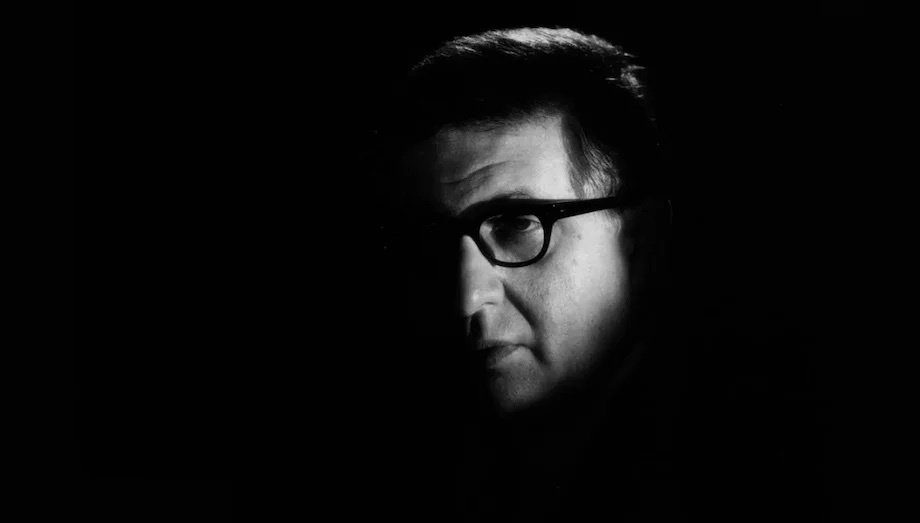
No one person has complete expression because film is a mosaic art, and if you work in films, you have to partake of a community expression. I have worked for some of the most impressive directors of the twentieth century, and until recent times when the new young blades came along, they never heard the phrase ‘complete expression’. I never felt that I was being constricted or walked on or made to conform in any manner. I think that people who say that they were simply didn't have the aptitude for writing film music or music of a dramatic nature, though they may be marvellous composers without this ability.
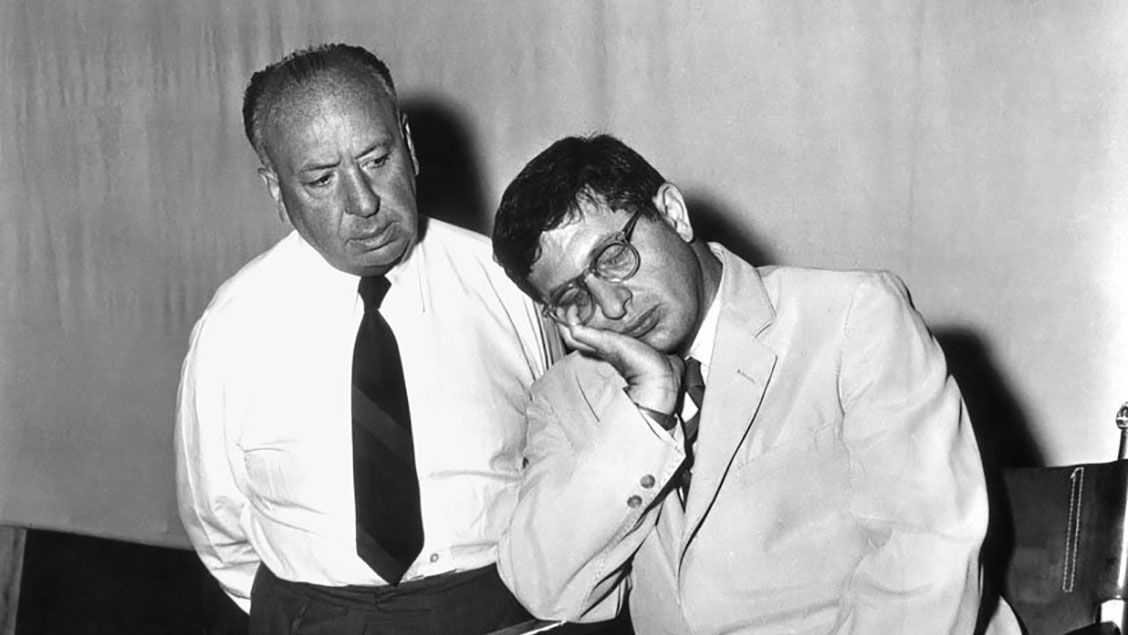
Cinema, and certainly the development of cinema, is undoubtedly the most important artistic development of the 20th century. Many people in the arts have refused to take it seriously in its infancy, which also happened at the same time with the gramophone. Today a composer who writes for the cinema reaches a worldwide audience to begin with, and it is the only form of art today which uses music as part of its artistic expression. I don't feel that the theatre, for example the living theatre, uses music to the extent that the cinema does. As a matter of fact I may be bold enough to say that with very few exceptions a piece of film or a film cannot come to life without the help of music of some kind.
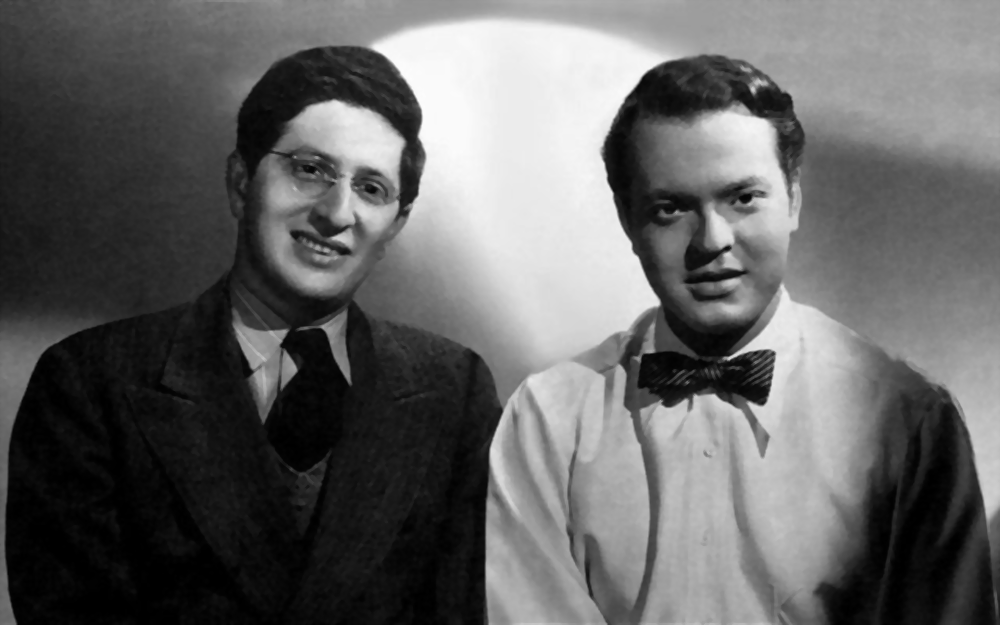
In last Sunday's Times, Erich Leinsdorf indulged in a favorite sport current among many of our interpretive concert musicians - that of belittling film music. As one who is also a conductor of a symphony orchestra, besides being the composer of a considerable amount of film music, I would like to take issue with his criticisms. In the first place, he seems upset by the fact that music in films must of necessity be incidental. He declares that music in any “subordinate” place is “odious” to a musician. I fail to see what he means by the word “subordinate.” If film music is subordinate, so is music in the theatre and the opera house. Music in the films is a vital necessity, a living force. Had Mr. Leinsdorf ever seen a film in the projection room before the music was added, he would understand thoroughly how important the score is.
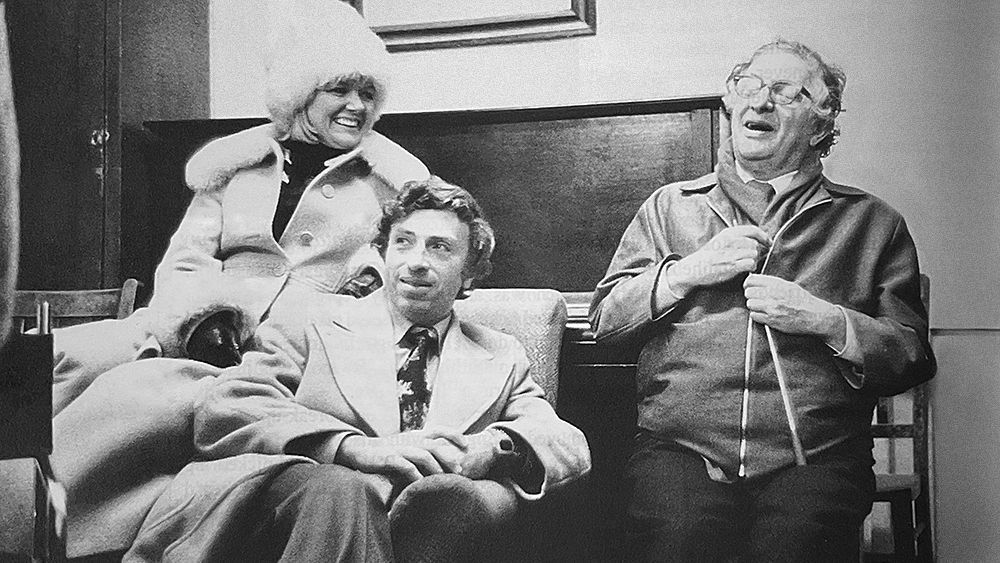
During the 1970's, Larry Cohen, writer-director of such films as Q: THE WINGED SERPENT, THE STUFF and IT'S ALIVE, became close friends with one of the greatest film composers of all time, the late, great Bernard Herrmann. The following recollection is taken from a recent interview with Cohen in which he talks about Herrmann's tempestuous relationships with Alfred Hitchcock, the studios, and his last years.
Reviews
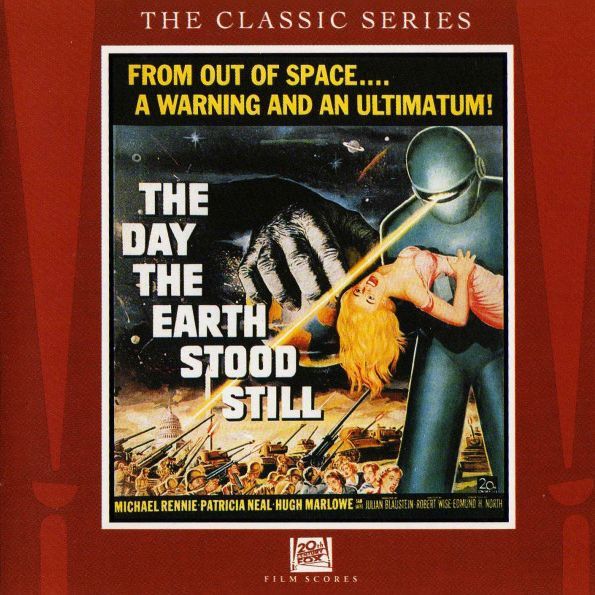
The fifth release in Fox Records’ commendable first set of “Classic Series” soundtrack restorations is one of Bernard Herrmann's best scores. The first composer’s outright science fiction score, this 1951 cautionary tale contained the first electronic science fiction score of the decade, and one that remains to this day a landmark of genre film music.
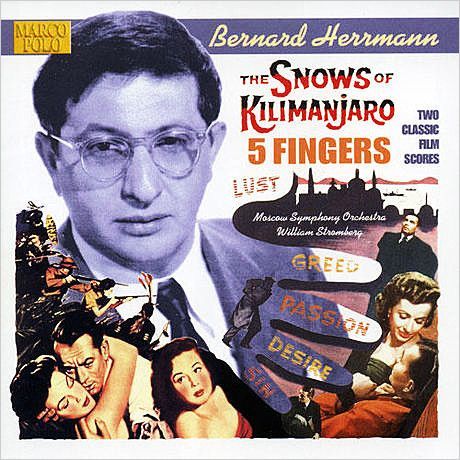
The welcome outpouring of previously unrecorded 20th Century-Fox scores continues with a new Stromberg/Morgan release, THE SNOWS OF KILIMANJARO and FIVE FINGERS, two lesser-known Herrmann scores from 1952. The screenplay for SNOWS is a series of flashbacks, and more a Technicolor fantasia on Hemingway themes than a valid adaptation of the author’s original short story of the title. Herrmann’s score is best known for the delicate “Memory Waltz,” but as a whole poignantly evokes themes of love, longing, and death in a manner akin to VERTIGO.
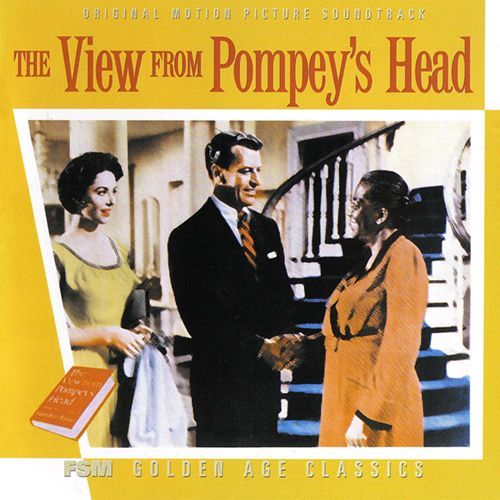
If anyone neeads proof that Elmer Bernstein and Bernard Herrmann are among the greatest film music masters, then this disc should provide it. It contains the scores for two lesser-known films from the 1950s. Both scores have more to offer than the films themselves, yet the scores don’t call attention to themselves in any overindulgent way. They also have something else in common: both films were directed by Philip Dunne. He had been an admirer of Herrmann ever since working with him on THE GHOST AND MRS. MUIR.
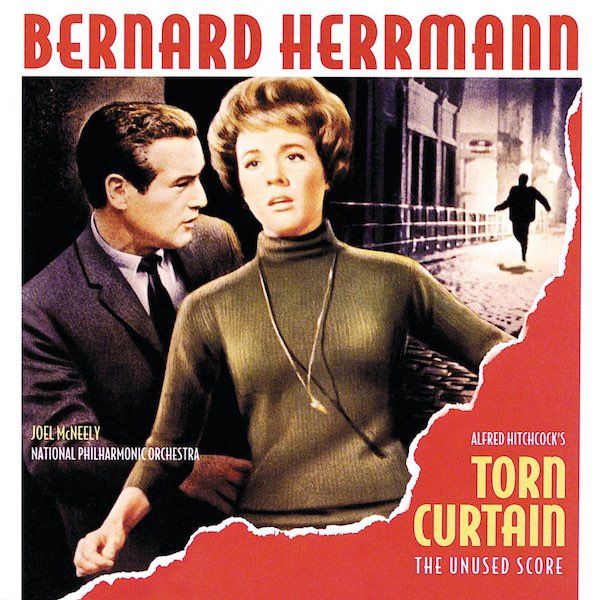
Herrmann wrote for a grand and idiosyncratic orchestra of sixteen French horns, twelve flutes, nine trombones, two tubas, two sets of timpani, eight cellos and eight basses. This accounts for the grey pastel shades. The score was a monochrome essay catching the Iron Curtain atmosphere. Hitchcock dropped the Herrmann score although many of the cues had, according to the Herrmann documentary which many may have seen on Channel 4 (UK), by then been recorded. The director then went to John Addison who provided Hitchcock with a better approximation of what he wanted. The break with Herrmann was complete. Herrmann is good at gloom (I wonder if he knew the music of Allan Pettersson) and he plays to this sinewy strength in this score. The variety comes largely from the ear-tickling textures which Herrmann creates. There is little of the slightly icy lyricism of the MARNIE score. The solo viola serenade Valse Lente (8) is a very subdued affair - a notch down from Ravel's Pavane pour une Infante Défunte. Track 24 (The

This splendid new recording in true stereo of one of the classic collaborations of Hollywood composers derives itself from the original score composition to present the music as it was intended to appear in the film. The “original score recording” (reissued beautifully on CD by Varèse Sarabande) was a monophonic re-recording by Alfred Newman, in which specific changes were made in some of the selections. Arranger John Morgan has gone back to the primary source materials to present or recreate the cues as Newman and Herrmann had originally written them for the film.
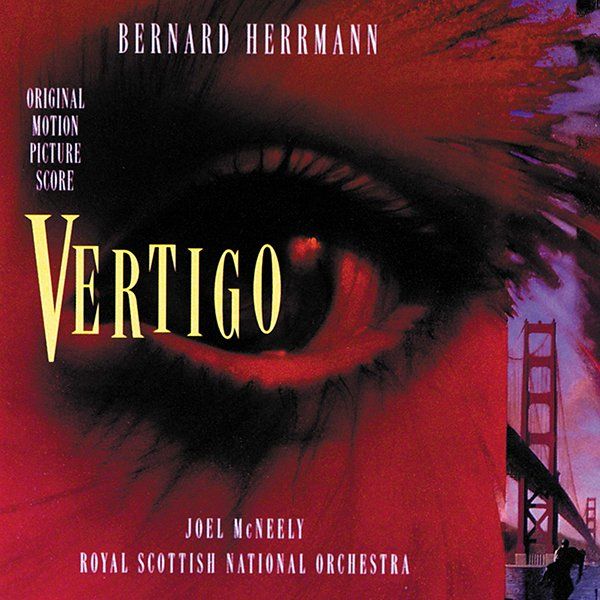
Joel McNeely conducts this very welcome recording of Herrmann’s VERTIGO, which features nearly thirty minutes of music not included on the original Mercury soundtrack album. Although still about ten minutes short of being complete, it manages to cover most of the score’s major moments, resulting in a new appreciation of the structure of the score. Now it is possible for instance to trace the development of Madeline’s theme through several of its incarnations, from its tentative beginnings in “Madeline’s First Appearance”, through the dreamlike beauty of the high strings in “The Flower Shop” and “The Graveyard”, to the elegant yet seductive “By the Fireside.” A surprising and disappointing omission however is the short cue “The Outing”, in which the first stirrings of the love theme are heard, as it grows out of Madeline’s theme. As a matter of fact, the love theme in general is given short shrift, with almost none of its early appearances included to build the foundation for its ultimate transfiguration in th

IT’S ALIVE is Bernard Herrmann in uncompromising mood with a score of such unsettling grand guignol terror as to make the listener want to turn up the house lights and lock the doors and windows! Laurie Johnson refashioned the score for the sequel IT’S ALIVE 2 (aka IT’S LIVES AGAIN) and hitherto that has served as a substitute for Herrmann’s score but the original, as heard on this disc from Film Score Monthly (FSM) is considerably bleaker and more dissonant. Herrmann’s “Main Title” is suggestive of an almost primeval sense of evil and foreboding, leaving absolutely no doubt as to the type of film which the music is dramatising. Brass and percussion are Herrmann’s favoured instruments for the score and are combined to savage effect in the horrific scenes of the mutant infant’s birth in “The Delivery” and for the climactic attack and death in “Kill It”.
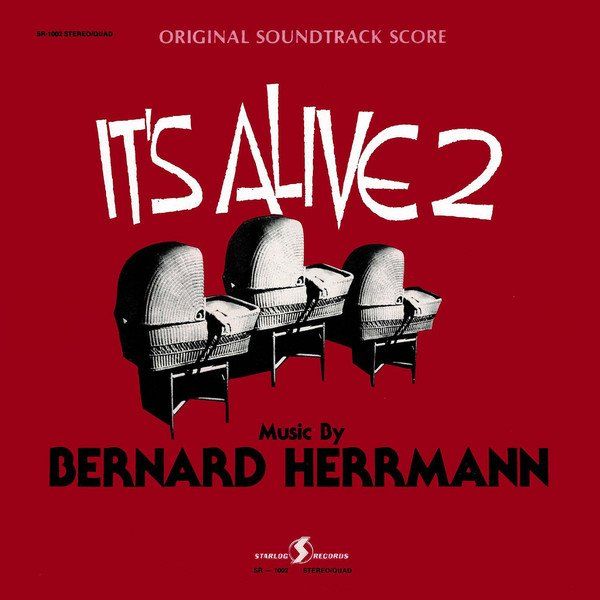
In December 1975 Bernard Herrmann died in Hollywood just after completing his score for Taxi Driver, his 49th film. There was, however, one more movie yet to come to bring the Herrmann filmography to an even 50. In 1974 he had scored It’s Alive for Larry Cohen; when the picture’s surprise success led to a sequel in 1978 Cohen chose to reuse the original Herrmann music, this time adapted, orchestrated and conducted by Herrmann’s longtime friend and associate, Laurie Johnson, who also provided some additional scoring. Johnson, himself a composer for films, among them the Hermannesque music for Harryhausen’s First Men in the Moon, did a faithful job of recreating the Herrmann sound for the Cohen sequel and It’s Alive II has now been issued as a kind of posthumous tribute.



